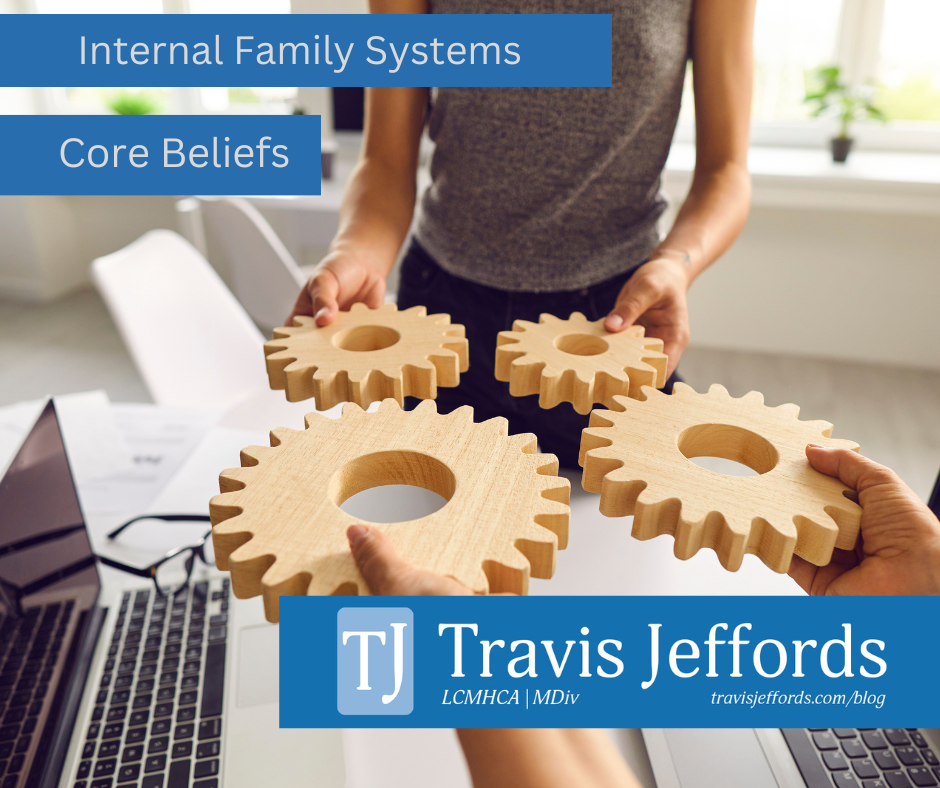Internal Family Systems Core Beliefs
It can be tricky to know what exactly you’re getting yourself into when you see a counselor. Different modes/methods/theories of counseling can involve all kinds of different things:
Working through printed off worksheets
Listening to beeps through headphones
Sitting in silence and ‘listening’ to your body
Talking to a therapist about your problems
There really is a lot of research that support a wide variety of methods for counseling, so it’s hard to know what is best for you.
As a male counselor who works with men in Greensboro and Winston-Salwm, I have found that for many men, a model called Internal Family Systems (IFS) really can work wonders in their lives. Let me break down Internal Family Systems (IFS) into three core beliefs:
3 Core Beliefs of Internal Family Systems (IFS)
We all have different parts.
Anxious, sad, angry, depressed…IFS views all of our emotions as distinct parts of us. Our different parts each want different things for us, and try to help in their own way. When people hear me say we have different parts in us, some people get on board right away, and others feel like it sounds a little too woo-woo. You are free to understand it however you want…I just know that it really can change men’s lives.
2. There are no bad parts.
All parts inside us are trying to help in their own way. Sometimes people have trouble with this one. That’s okay. The way I explain this is that parts are trying to help in the best way they know how.
An anxious part, for example, may be trying to alert us of a danger it thinks lies ahead. A depressed part may be trying to let us know that we are exhausted and ignoring an earlier pain in life it’s time to work through. An angry part may be trying to let us know that our boundaries are being crossed.
Again, none of these parts are ‘bad’, they’re trying to help in the way they know how.
3. The existence of the Self.
IFS believes that inside all of us is a part, that isn’t really a part at all…it’s…well…it’s us when we’re not acting from another part. IFS calls that the Self. More on this in a moment.
Core Beliefs of IFS: Magnets, Conductors, and Self
We all have parts and we all have this Self inside us. When people speak from a part of themselves, to another person’s part…it tends to not go well. It’s almost like the negative sides of magnets butting up against one another. They react and repel each other. You can imagine an anxious part talking to another person’s angry part not going very well, right?
But when one person is acting from their Self, things naturally go much smoother…like a positive and negative magnet coming together and just clicking into place. There’s nothing forced about it. When someone is in that Self space, communication with others goes better.
To jump abruptly to a different metaphor, Self can be like the conductor in an orchestra…it listens to the different parts, but all the parts trust (when you’re functioning optimally) that the conductor is in charge and is working for the benefit of everyone in the orchestra. It takes in the parts information, but Self is able to make the decision that benefits everyone the best.
Internal Family Systems Core Beliefs: Self and Self-led Therapy
Once you are able to find your Self, not only can you communicate with others in a way that creates more peace, connection, and compassion, you can also communicate with your own parts this way.
The work of Internal Family Systems (IFS) and therapy is then to help you access your Self, and actually listen to, connect with, and heal your own parts.
Wishing you the best on your mental health journey.
Hi, I’m Travis.
My clients describe me as calm, compassionate, and curious…
You have these qualities inside you at your core too as your Self. You may just need a little help uncovering them.
If you’re dominated by parts like anger, anxiety, or self-criticism, we can help find your Self: confident, calm, courageous, compassionate, and connected to yourself and others.
Travis Jeffords - LCMHCA | MDiv. | Male Counselor
In-person counselor: Greensboro & Winston-Salem
Virtual counselor: North Carolina
Licensed Counselor
Please note: The information provided in this blog is for general informational purposes only and is not a substitute for professional counseling or therapy. The content presented here is based on my professional knowledge, personal experiences and research, but it should not be considered as a replacement for individualized mental health advice.
Every individual is unique, and the content provided may not be applicable to everyone's specific circumstances. It is important to consult with a licensed mental health professional regarding your specific concerns and to receive personalized guidance tailored to your needs.







